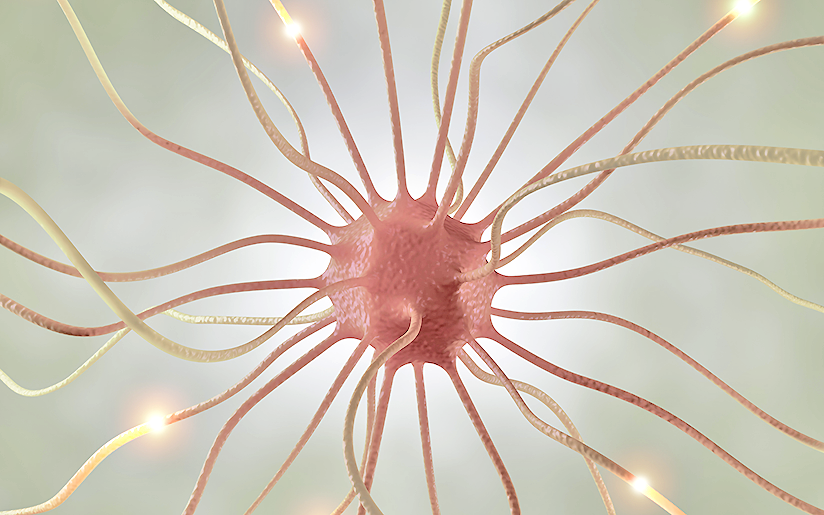Understanding Nerve Damage and Nerve Pain
Your nerve system plays a role in everything. Such as breathing regulation, muscle control, touch and sensation, and more. The body contains three types of nerves; autonomic, sensory, and motor. It’s important to understand nerve damage and pain.
Autonomic nerves control involuntary activity. Sometimes they control partially voluntary movements too. Heart rate, digestion, and temperature regulation are controlled.
Motor nerves control movements. They pass information from the brain to your muscles.
Sensory nerves return information back to the brain and spinal cord. Your skin and muscle send messages back for interpretation. You then feel pain and other sensations.
Your nerves are essential to all you do. Nerve pain and damage can, therefore, interfere with your life.
Symptoms
There can be an array of symptoms with nerve damage. They will depend on the location of the damaged nerve. Damage can occur to any nerves. Nerves in areas such as the brain, spinal cord, and peripherals can all be damaged.
Damage to the autonomic nerves causes symptoms, such as:
- Lightheadedness
- Dry eyes and mouth
- Hyperhidrosis (sweating too much)
- Anhidrosis (sweating too little)
- Constipation
- Bladed dysfunction
- Sexual dysfunction
Damage to the motor nerves can cause symptoms, such as:
- Twitching
- Weakness
- Muscle atrophy
- Paralysis
Sensory nerve damage can cause symptoms, such as:
- Pain
- Sensitivity
- Numbness or tingling
- Burning sensation
In some cases, symptoms can indicate damage to more than one nerve. For instance, you may experience weakness and burning sensation. Therefore, two types of nerves are damaged. This causes problems with positional awareness.
Over 20 million Americans have peripheral nerve damage of some kind. Damage increases with age. However, certain conditions can increase the risk. In fact, 70% of those with diabetes have nerve damage.
Causes of Nerve Damage and Pain
There are over 100 different types of nerve damage. Each of these has different symptoms. And all also require different treatments. Nerve damage and treatment is complicated. It helps to know the most common causes, such as:
Autoimmune diseases.
Certain autoimmune diseases can produce symptoms of nerve pain, such as:
- Lupus
- Multiple sclerosis
- Myasthenia Gravis
- Inflammatory bowel disease
Cancer.
There are a few ways cancer can cause nerve damage. Cancer masses can push against nerves and pinch them. Some cancers though cause a nutritional deficiency that impacts nerve function. Chemotherapy can also produce nerve pain in some patients.
Compression.
Trauma can cause nerves to be compressed. And pinched nerves or crushed nerves can result from injuries. Carpal tunnel is a common cause of nerve damage. It results from repetitive use.
Diabetes.
Diabetes is commonly associated with nerve damage. As the disease progresses though, it’s more of a risk. As a matter of fact, Diabetic Neuropathy is very serious. It impacts all three nerve types. However, the sensory nerves are impacted most. Burning and numbness are common in the limbs. Diabetics that experience nerve pain needs to see their doctor. Specifically, assessments need to be done to evaluate the risk of damage.
Motor neuron diseases.
Diseases can affect your motor nerves. The most common one though is ALS or amyotrophic lateral sclerosis. This is more commonly known as Lou Gehrig’s disease. It causes worsening nerve damage over the years.
Nutritional deficiencies.
Nutrients such as vitamin B6 and B12 are important for nerves. Therefore, deficiency in these can cause nerve damage or pain. Nutritional deficiencies also result after gastric surgery. Additionally, excessive alcohol consumption can cause deficiencies and nerve pain.
Infectious disease.
Diseases such as Lyme disease, herpes, hepatitis, and HIV can damage nerves.
Treating Nerve Pain
Treatment for nerve damage is aimed at addressing the underlying cause. However, It’s important to know the symptoms associated with each nerve type. Therefore, this makes diagnosis and treatment more effective.
If you are searching for a pain specialist, call us now at 888-409-8006. Offices located throughout South Florida.

